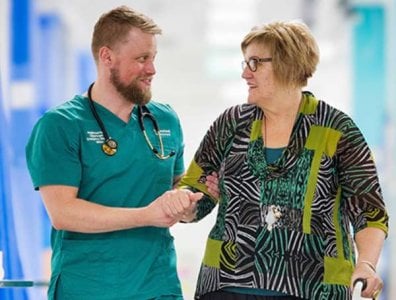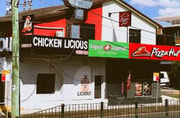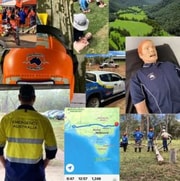State unlocks $100 million funding for its healthcare system! See how these changes can benefit senior Aussies
By
Danielle F.
- Replies 0
As we age, healthcare plays a vital role in our lives.
Regular checkups are essential when it comes to managing chronic conditions.
A state announced their plan to improve healthcare services for its citizens soon, especially for those awaiting surgery.
The Queensland government revealed a $100 million funding injection aimed at reducing the elective surgery backlog.
This financial commitment could benefit about 10,000 Queenslanders over the next six months.
Queenslanders awaiting procedures such as knee replacements and tonsillectomies could see this financial boost as a boon for their conditions.
The initiative, called Surgery Connect, was a collaborative effort between public and private healthcare sectors.
It should allow patients from the public health system to access elective surgeries in private hospitals.
Surgery Connect could alleviate the pressure on public facilities and expedite patient care.
The recent statistics underscored the urgency of this measure.
As of the December quarter, 66,632 Queenslanders have been on the elective surgery wait list—indicating a 2,000-patient increase from the previous quarter.
Health Minister Tim Nicholls confidently shared that the additional funding will deliver around 10,000 extra surgeries by the end of June.
'We will be working with more than 60 private partners to help deliver the boost to Surgery Connect across ENT, general surgery, orthopaedics, urology, ophthalmology, gynaecology and plastics,' Minister Nicholls stated.
'Within weeks, if not days, the private hospital system can ramp up to accept those patients.'
Despite the proactive steps, several figures criticised the initiative.
Shadow Health Minister Mark Bailey believed that the start of the LNP's term was 'disappointing'.
'More than 2,500 extra Queenslanders are waiting for surgery; a huge surge of eight per cent of people waiting for surgery beyond the clinically recommended times,' Minister Bailey pointed out.
Ramsay Health's Chief Executive Carmel Monaghan highlighted Queensland as the national benchmark for elective surgeries, even with the recent uptick in wait times.
'It is one thing that Queensland does get right,' Ms Monaghan said.
Australian Medical Association Queensland's president, Dr Nick Yim, welcomed the $100 million investment.
However, Dr Yim still called for systemic changes to address the backlog fundamentally.
'This includes expanding operating hours and surgical scheduling to deliver all-day lists and seven-day elective surgeries where workforce permits, and enable private patients with private billings to be treated in public hospitals,' Dr Yim expounded.
'We also need to see the doctors from rural and regional areas prioritised in specialist trainee selection processes and increases in specialist and subspecialty training in the regions.'
In addition to the elective surgery funding, Queensland saw a decline in ambulance ramping figures.
The prevalence of ramped patients dropped to 39.1 per cent in the December quarter, down from 41.6 per cent in the September quarter.
The ambulance ramping rate in Queensland reached an all-time high of 44.7 per cent in June last year.
Health Minister Nicholls attributed these improvements to seasonal factors and the government's efforts.
Minister Nicholls also announced that ramping figures should now be released monthly instead of quarterly to provide timely and accurate data.
The LNP committed to reducing ambulance ramping below 30 per cent by the end of its first term.
However, Minister Bailey still urged the government to include real-time data on ramping.
For seniors who are due for surgery soon, these developments could mean shorter wait times for necessary surgeries and improved emergency services.
If you or a loved one is awaiting elective surgery, this funding boost could be the key to receiving timely medical attention.

We encourage you to discuss with your healthcare provider how this initiative might impact your treatment plan. How do you feel about the government's approach to tackling the elective surgery backlog and ambulance ramping? We invite you to share your thoughts and experiences with the healthcare system in the comments below.
Regular checkups are essential when it comes to managing chronic conditions.
A state announced their plan to improve healthcare services for its citizens soon, especially for those awaiting surgery.
The Queensland government revealed a $100 million funding injection aimed at reducing the elective surgery backlog.
This financial commitment could benefit about 10,000 Queenslanders over the next six months.
Queenslanders awaiting procedures such as knee replacements and tonsillectomies could see this financial boost as a boon for their conditions.
The initiative, called Surgery Connect, was a collaborative effort between public and private healthcare sectors.
It should allow patients from the public health system to access elective surgeries in private hospitals.
Surgery Connect could alleviate the pressure on public facilities and expedite patient care.
The recent statistics underscored the urgency of this measure.
As of the December quarter, 66,632 Queenslanders have been on the elective surgery wait list—indicating a 2,000-patient increase from the previous quarter.
Health Minister Tim Nicholls confidently shared that the additional funding will deliver around 10,000 extra surgeries by the end of June.
'We will be working with more than 60 private partners to help deliver the boost to Surgery Connect across ENT, general surgery, orthopaedics, urology, ophthalmology, gynaecology and plastics,' Minister Nicholls stated.
'Within weeks, if not days, the private hospital system can ramp up to accept those patients.'
Despite the proactive steps, several figures criticised the initiative.
Shadow Health Minister Mark Bailey believed that the start of the LNP's term was 'disappointing'.
'More than 2,500 extra Queenslanders are waiting for surgery; a huge surge of eight per cent of people waiting for surgery beyond the clinically recommended times,' Minister Bailey pointed out.
Ramsay Health's Chief Executive Carmel Monaghan highlighted Queensland as the national benchmark for elective surgeries, even with the recent uptick in wait times.
'It is one thing that Queensland does get right,' Ms Monaghan said.
Australian Medical Association Queensland's president, Dr Nick Yim, welcomed the $100 million investment.
However, Dr Yim still called for systemic changes to address the backlog fundamentally.
'This includes expanding operating hours and surgical scheduling to deliver all-day lists and seven-day elective surgeries where workforce permits, and enable private patients with private billings to be treated in public hospitals,' Dr Yim expounded.
'We also need to see the doctors from rural and regional areas prioritised in specialist trainee selection processes and increases in specialist and subspecialty training in the regions.'
In addition to the elective surgery funding, Queensland saw a decline in ambulance ramping figures.
The prevalence of ramped patients dropped to 39.1 per cent in the December quarter, down from 41.6 per cent in the September quarter.
The ambulance ramping rate in Queensland reached an all-time high of 44.7 per cent in June last year.
Health Minister Nicholls attributed these improvements to seasonal factors and the government's efforts.
Minister Nicholls also announced that ramping figures should now be released monthly instead of quarterly to provide timely and accurate data.
The LNP committed to reducing ambulance ramping below 30 per cent by the end of its first term.
However, Minister Bailey still urged the government to include real-time data on ramping.
For seniors who are due for surgery soon, these developments could mean shorter wait times for necessary surgeries and improved emergency services.
If you or a loved one is awaiting elective surgery, this funding boost could be the key to receiving timely medical attention.
Key Takeaways
- The Queensland government committed $100 million for elective surgery, which could benefit 10,000 Queenslanders in the next six months.
- Surgery Connect should facilitate elective surgeries for public health patients in private hospitals, helping address the increasing elective surgery waitlist.
- Queensland Health Minister and health industry professionals believed that the funding could aid the situation. However, systemic reforms could also create more sustainable solutions to the problem at hand.
- Queensland showed a decrease in ambulance ramping figures, with the latest data indicating a fall to 39.1 per cent.








